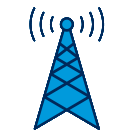Informe Gestión Responsable 2020
7.4.Responsible
Business Plan
Using the analysis of impacts, risks and opportunities, and acknowledging the importance of economic, environmental, social and governance management, in 2016, the Company established its first Responsible Business Plan for a three-year period (2016-2018). In 2019, at the end of its term, the Company’s second Responsible Business Plan was started (2019-2021).
This plan includes the Company’s specific sustainability objectives and is aligned with the 2030 Agenda, the Principles of the Global Compact, Plan Reconecta, the Responsible Business Plan for Hispanic America, and the Colombian context, establishing the results of stakeholder engagement expressed in materiality. Consequently, it has been structured under six lines of commitment:
Colombia Responsible Business Plan
Hispanic America
Responsible Business Plan
#Reconecta plan
We reconnect by being relevant, reliable and accessible
Inclusive connectivity
#Revenues - #Returns -
#Relevance - #Responsibility
We reconnect by bringing the benefits of digitalization to everyone
Inclusive connectivityTransformation
#Revenues -#Relevance
-#Responsibility
We reconnect by being responsible with our suppliers
Building trust Transformation
#Revenues - #Responsibility
We reconnect by motivating the best human resources
Building trustInclusive connectivity
#Revenues - #Responsibility
- M#tivation
We reconnect by being environmentally responsible
Transformation
#Revenues - #Responsibility
- M#tivation
We reconnect by acting with integrity and leading by example
Building trust
#Revenues - #Returns - #Relevance
- #Responsibility - M#tivation
Integrated
Management System
The Responsible Business Plan is coordinated with the Integrated Management System (IMS), structured under the ISO standards, internationally recognized for defining the requisites to establish, implement and improve a management system.
Telefónica Movistar has set objectives for each management system that comprises it, which guide the action plans and facilitate the performance evaluation and improvement. To establish these goals and targets, the Company takes into account the legal system, the context, the strategic guidelines of the organization, the Responsible Business Plan, risks, and legal and other requirements, and it establishes metrics for each one.
Additionally, the Integrated Management System has an interactive scheme that involves the participation of all the organization’s members.
Telefónica Movistar’s Integrated Management System is comprised of:
Telefónica Movistar has set objectives for each management system that comprises it, which guide the action plans and facilitate the performance evaluation and improvement.
The Integrated Management System is audited annually as an essential activity to ensure achievement of the goals to manage, assess and ensure compliance with the procedures, policies and controls, as well as their efficacy. Similarly, an external audit was conducted on each management system by the certifying body, which in 2020, was AENOR, with the aim to confirm that the Company meets all of the standard’s requisites, using the ISO standards as a reference.
Additionally, as well as the internal and external audits of the IMS, during the year, there were also audits by customers, audits to
verify environmental, energy and infrastructure information, and monitoring by government entities, as well as other processes.
In 2020, 53 audits were conducted by the Company and third parties for the validation of the Integrated Management System. Four external audits were also carried out for each management system, which obtained satisfactory results, confirming that Movistar’s management system remains certified by international standards, proving an adequate degree of maturity.
The market requirements mean that all kinds of organizations and companies have to consider a broader vision that meets the needs not only of the customers, but also of other internal stakeholders (shareholders and employees) and external stakeholders (government, environment, suppliers and society) to achieve its strategic goals. The Integrated Management System (comprised of the Quality, Environmental, Occupational Health and Safety, and Information Security Management Systems) is a tool to support the sustained fulfillment of the stakeholders’ needs and expectations.
When implementing the Integrated Management System, , benefits are obtained, such as:
Strength and improvement of the Company’s reputation.
Continuous improvement of the processes.
Increase in stakeholder satisfaction, including shareholders, employees, customers, suppliers and partners, becoming relevant in order to provide the best experience.
Enhancement of the organization’s resources.
Assuranceof all aspects of the business, from product quality and customer service, to employee well-being and sustainable environmental operations.







